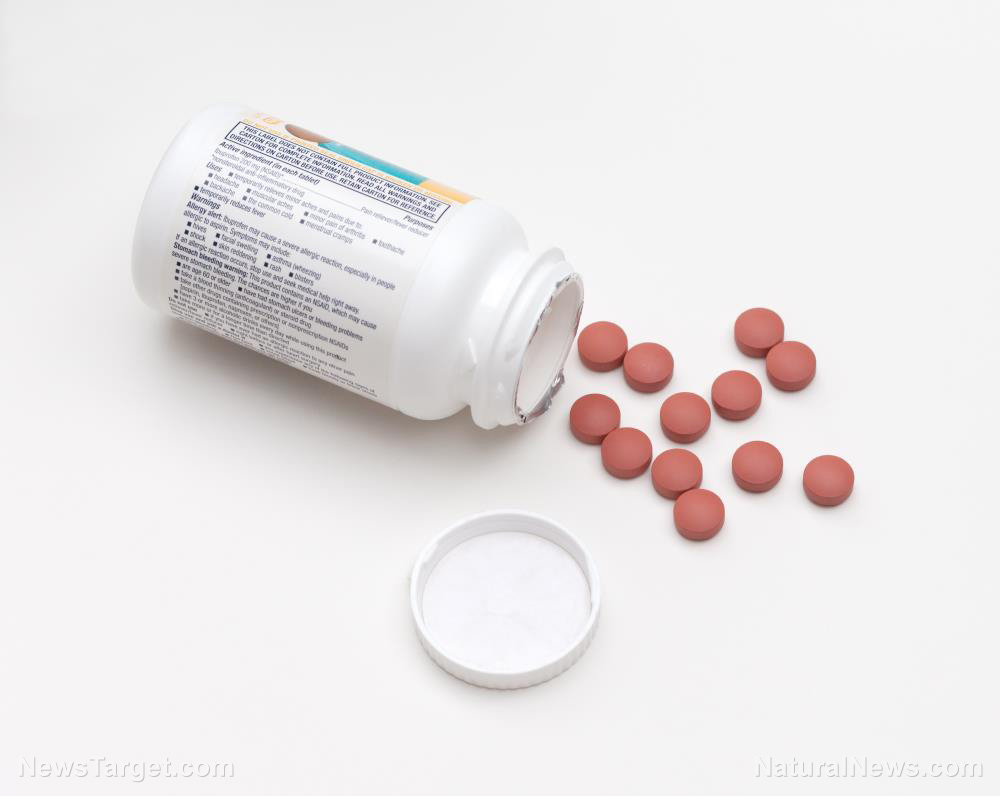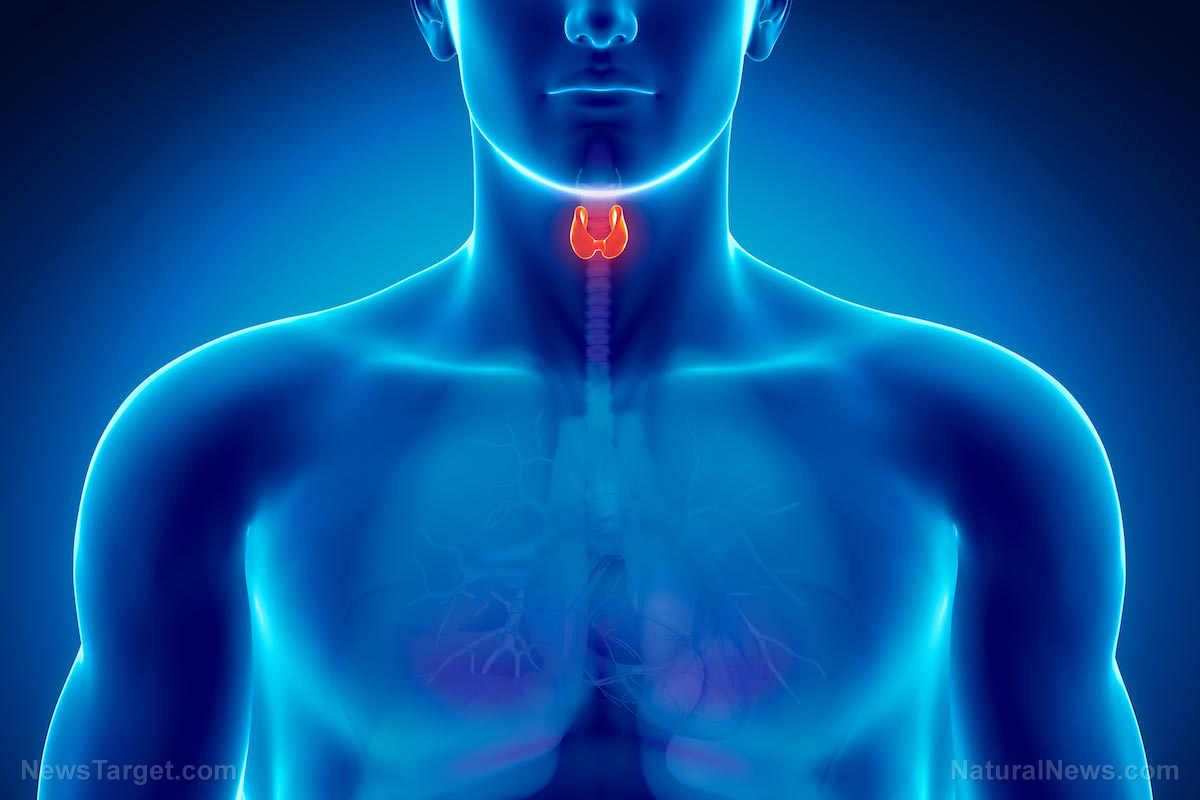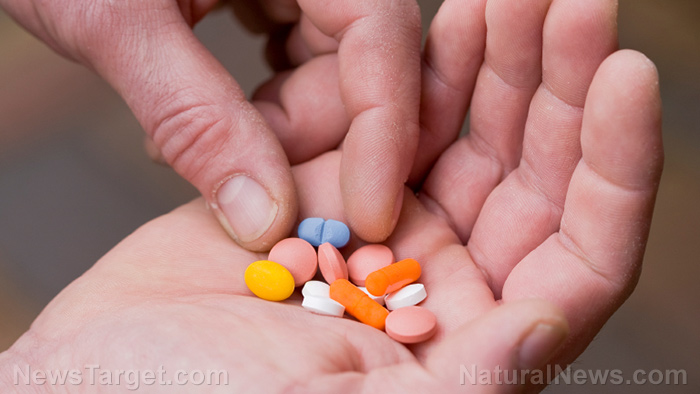Short-term relief, long-term damage: NSAIDs actually damage heart, kidneys
05/02/2019 / By Isabelle Z.

If you tend to reach for ibuprofen or aspirin for every ache and pain, ask yourself if the short-term relief it may give you will be worth raising your risk of heart and kidney failure in the long term.
NSAIDs, or non-steroidal anti-inflammatory drugs, are widely used for pain and inflammation, and most people don’t think twice about taking these over-the-counter medications when they’ve got some type of pain. Some examples of NSAIDs include aspirin, ibuprofen, naproxen, ketoprofen, and celecoxib. Unfortunately, prolonged use of these drugs has been shown to increase a person’s risk of kidney and heart failure.
A study carried out by researchers from the University of Alabama at Birmingham highlighted the dangers of these medications. Because heart disease is the top cause of death among women and men alike in the U.S. and these drugs are so popular, they wanted to explore the cellular and molecular mechanisms of action through which the medications damage the kidneys and hearts at the same time in what’s known as cardiorenal syndrome.
They found that taking NSAIDs triggered low-grade inflammation in the kidneys and heart. In addition, the drugs impaired immune response during heart failure, amplifying inflammation in the organs and making it harder for the body to recover.
The study looked at the NSAID carprofen, but there’s reason to believe that other NSAIDs would have a similar effect. We already know, for example, that ibuprofen has been linked to an elevated risk of cardiac arrest.
A study by Danish researchers involving more than 3,000 patients showed that taking ibuprofen raised the risk of cardiac arrest by 31 percent. The researchers said they hoped their finding would serve as a warning to the public that these drugs are not harmless as many people mistakenly believe. They recommended that they are used with caution and avoided by those with cardiovascular disease or risk factors for cardiovascular disease.
Mother Nature's micronutrient secret: Organic Broccoli Sprout Capsules now available, delivering 280mg of high-density nutrition, including the extraordinary "sulforaphane" and "glucosinolate" nutrients found only in cruciferous healing foods. Every lot laboratory tested. See availability here.
Meanwhile, a group of international researchers carried out a systematic review involving 446,763 people. They found that taking any dose of NSAIDs raised the risk of heart attack by varying amounts. For example, within the first week of taking drugs like naproxen, heart attack risk climbed by 99 percent, while taking ibuprofen for anywhere from one to seven says raised the risk of heart attack by 97 percent. The overall risk was greatest within the first month of taking NSAIDs and among those taking higher doses.
How can you get pain relief safely?
If this news has you tossing out all the NSAIDs in your medicine cabinet, you might be considering switching to acetaminophen. Unfortunately, that’s not much better. The painkiller, which is found in drugs like Tylenol, is another medication that many people mistakenly think is pretty harmless. Unfortunately, it’s the top cause of liver failure in the U.S., and taking elevated doses over the course of just a few days can be enough to incur liver damage. Its effects are even more dangerous when it’s taken on an empty stomach. It has also been shown to “dull” your brain.
What can you do if you want to get some pain relief without risking your health? There are several different options depending on the type of pain you have. Turmeric can reduce inflammation and can be helpful to those with arthritis, while ginger is good at addressing the pain and nausea of indigestion. Acupuncture can be surprisingly effective for a wide range of pain, and some people find relief with yoga or meditation. Try a few alternative methods to see what works for you, and stay away from organ-damaging NSAIDs.
Read more about dangerous medicine at DangerousMedicine.com.
Sources for this article include:
Tagged Under: Acetaminophen, Aspirin, Cardiac Arrest, disease causes, heart attack, heart health, Ibuprofen, kidney failure, naproxen, NSAIDs, pain relief, painkillers, side effects



















